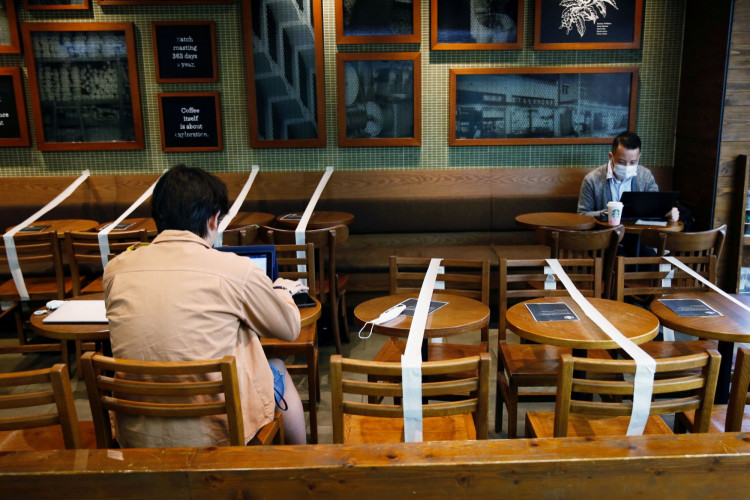Starbucks announced Tuesday that it expects the Chinese economy to recover from the adverse effects of the pandemic by September 2020. The company considers China as the biggest growth market despite experiencing significant drops of same-store sales in the country caused by the mandatory closure of its outlets around the world.
Starbucks reported a ten percent decrease in its same-store sales for its fiscal second-quarter values that ended on March 29, 2020. Despite the loss, Starbucks claimed that the Chinese economy would recover by the end of September 2020, and after analysts released a forecast of a 9.71 percent decline in its sales in the country.
The company earned 32 cents per share, excluding one-time items this week. The value was in line with Wall Street expectations despite closed stores of Starbucks in China for most of the second quarter. At present, however, about 98 percent of Starbucks stores in China have reopened.
The opened locations in China observe extra-safety measures to prevent the spread of the pandemic. These measures include limited café seating to uphold the social distancing mandate of the Chinese government.
During the third quarter of 2019, Starbucks forecasted a drop in sales by 25 to 35 percent following a decline in the next quarter on same-store sales by ten percent. It also expects that sales would roughly flatten out by the end of the fiscal year in September 2020. For the entire year, China's stores of the company saw a drop in same-store sales by 15 to 25 percent.
Starbucks also shared that it expects the financial impact of the pandemic to be significantly higher in 2020, especially during the third quarter. It also manifested that the same drop would be expected for the fourth quarter of 2020.
Most Starbucks stores in the US may also reopen by early June. Like in its Chinese stores, the company would also observe safety protocols according to a community-by-community basis. According to chief executive Kevin Johnson in an earnings call, Starbucks' international comparable sales in the second quarter fell by 31 percent. He also announced that about 75 percent of Starbucks-run locations remain closed In Canada, Japan, and the United Kingdom.
This year, Starbucks plans to open at least 500 new outlets. However, it would postpone the reopening of 100 more stores by 2021. On another note, the coffee chain improved its Rewards loyalty program by 15 percent on an annual basis for the quarter. It also generated 19.4 million active members.
Earlier this week, Starbucks also announced that it would diversify its financial portfolio by investing on venture capital firm Sequoia Capital and other Chinese tech companies. The move would allow the company to digitize its services and promote innovation in the food and retail industries.





